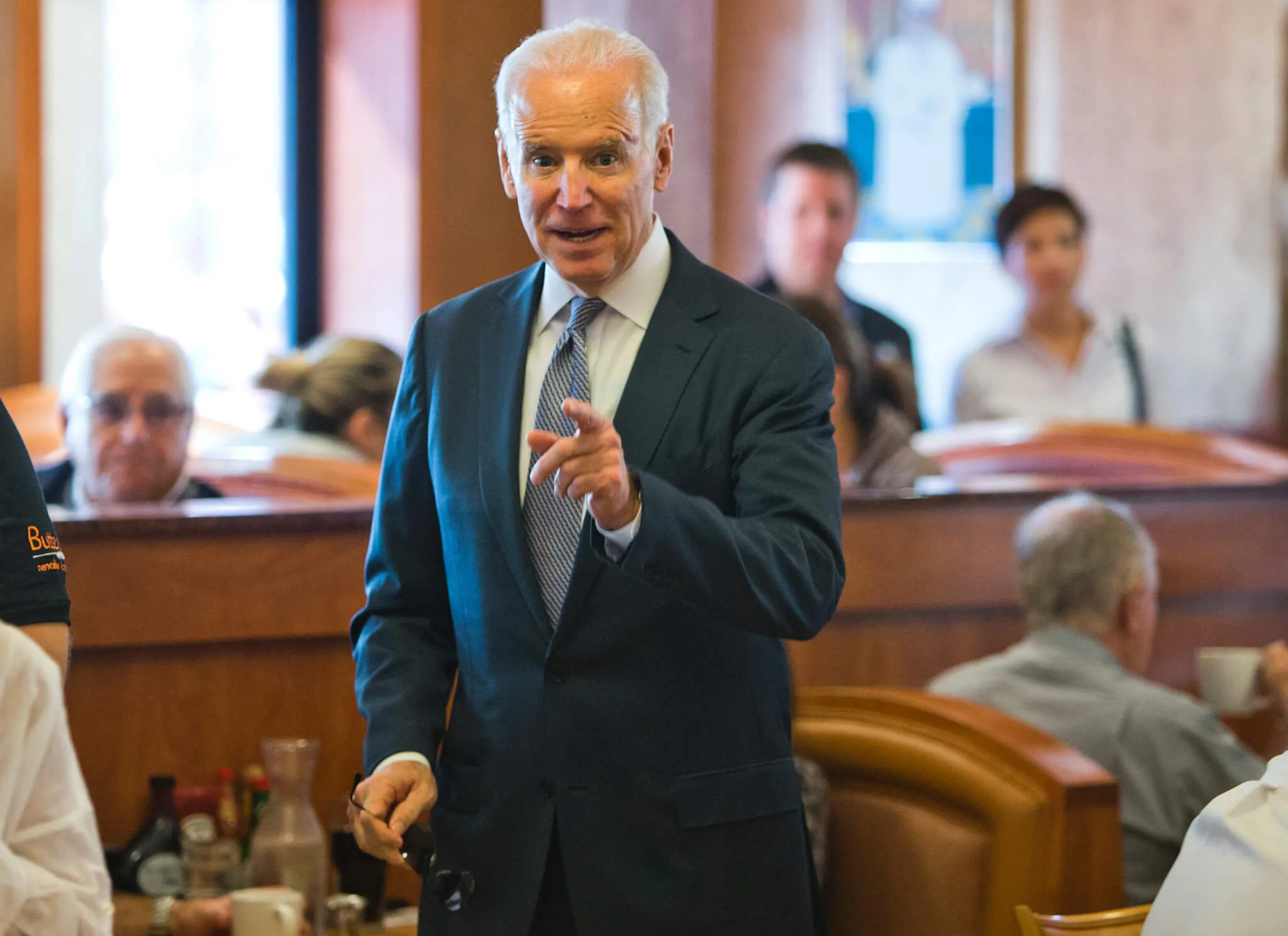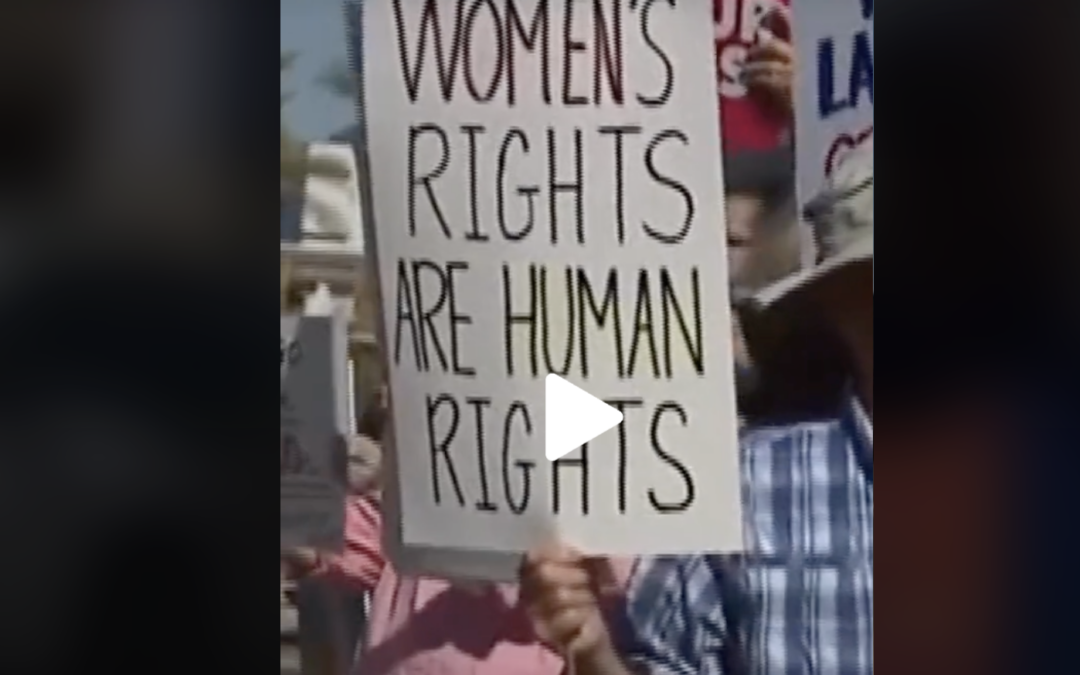
Joe Biden during a visit to Scottsdale, Arizona. Photo/The Arizona Republic, Tom Tingle, Pool
“A patchwork of federal, state, and local moratoriums give short-term relief to some people but leave many unprotected.”
Arizona renters may have breathed a sigh of relief last month when Gov. Doug Ducey extended the state moratorium on residential evictions to Oct. 31.
But for some of them, an eviction notice could come as soon as later this month if they don’t act.
In his July 16 executive order, Ducey said, that renters who wanted to defer a pending eviction have until Aug. 21 to notify their landlord in writing of a COVID-19 hardship and request a payment plan.
“After August 21, renters will need to provide their landlord or property owner a copy of their completed pending application for rental assistance through a state, city, county or nonprofit program” in order to defer eviction, the order says.
While the state’s moratorium was given an extension, federal protections for evictions were left to expire over a month ago. The Coronavirus Aid, Relief and Economic Security, or CARES, Act, included a moratorium on eviction from federally subsidized properties, or for renters in homes covered by a federally backed mortgage. But that protection ended July 24, and Congress has not yet been able to reach an agreement on a replacement relief package.
Biden’s proposal
The looming crisis prompted Presumptive Democratic Presidential nominee Joe Biden to speak out earlier this month, urging Congress to take action to prevent widespread housing instability. In a Medium post, he laid out his plans to stymie the oncoming surge of evictions and explained how President Donald Trump’s agenda made the crisis worse.
“Over the next two months, with no federal eviction moratorium in place, as many as 20 million families could find themselves out in the street without a safe place to live,” Biden wrote. “Because Donald Trump is abdicating his responsibility to lead us out of the pandemic crisis and the economic crisis, we now face a potential housing crisis across the country.”
In Biden’s plan, an emergency housing support program would be formed, which would offer broad relief to renters across the country. It would also include an extension of unemployment benefits, and nutrition programs. Funding would also be provided to cover the cost of health insurance for unemployed workers whose coverage was tied to their employment.
Under the Trump Administration, protections for renters during the pandemic were only made available to those living in federally-subsidized housing. Arizona’s first programs designed to help with housing stability were announced in March, but a slow rollout of relief has led to thousands of renters waiting months for help.
Relief on hold
When Ducey announced the extension of the first residential eviction moratorium, state efforts to provide assistance to renters were lagging. Just 1,266 out of 18,784 applications for rental assistance had been approved at the time, an approval rate of 6.7%.
Those numbers have improved, but only marginally. By this week, three weeks after Ducey announced the extension, the number of approved applications had risen to 1,380, but the total number of applications had also risen, to 20,313, an approval rate that was just under 6.8%.
Diane Yentel, president and CEO of the National Low Income Housing Coalition, says that a stronger federal response like what Biden proposed could have offered more comprehensive relief to those in need, rather than relying on a state-by-state solution.
“A patchwork of federal, state, and local moratoriums give short-term relief to some people but leave many unprotected,” Yentel said. “Eviction moratoriums on their own aren’t enough and when the moratorium ends, many renters will fall off a financial cliff trying to pay back-rent owed.”
Applications for the Rental Eviction Prevention Assistance program are being processed by 11 community action agencies around the state, according to Janelle Johnsen, communications director for the Arizona Department of Housing.
She said in an email that one of the problems those agencies are running up against is that almost half of the applications are incomplete due to missing documentation, which can slow down the process. ADOH statistics showed that 8,019 of the submitted applications as of Aug. 3, or 39.5%, were incomplete.
Johnsen says that ADOH has recently changed a number of policies to the program to make the funding more flexible and has eased the supporting documentation requirements.
Even if they can get approved, however, the assistance program is not likely to clean the slate for renters.
Rising demand
At the end of July, the COVID-19 rental assistance program’s average monthly assistance was just under $900 for renters who had successfully applied and been approved. Total assistance paid out at that time was a little more than $1.7 million, out of $9.9 million requested. By this week, the numbers had risen to $1.85 million of $10.4 million requested.
Tenants can get assistance for past-due rent, but have to reapply for every month that they go further into debt to their landlord. To be eligible, renters have to show that they have lost income because of COVID-19, such as through the loss of a job, or that they have a medical reason, such as being quarantined or having to care for a sick relative.
Lamar Hawkins, an attorney at Guidant Law Firm in Tempe, says landlords could move quickly once the moratorium expires, which is why he encouraged tenants to have open communication with their landlords.
Hawkins noted that it is easier for landlords to hang on to current renters than having to kick them out, eat the money that they were owed in back rent and find new people to rent the vacant space.
But Cathy Fisette said she’s done everything right and still worries that she will not be able to avoid eviction.
Furloughed from her job in March due to the pandemic, and with her unemployment benefits winding down, the Tempe resident is in a tough position. Her complex had been waiving late fees for rent, but she said that is no longer the case.
She told her landlord that her family was “struggling and couldn’t pay rent on time,” but was told that it is due on time and that partial payments would not be accepted. And she was told that it could take up to 90 days before her application is even looked at.
“They don’t care,” Fisette said. “All they care about is money.”
Politics

Trump says he’s pro-worker. His record says otherwise.
During his time on the campaign trail, Donald Trump has sought to refashion his record and image as being a pro-worker candidate—one that wants to...

VIDEO: Hundreds show up in Scottsdale to support reproductive rights
@coppercourier Days after the Arizona Supreme Court ruled to enforce a long-dormant law that bans nearly all abortions, hundreds took part in a...
Local News

US court rejects a request by tribes to block $10B energy transmission project in Arizona
In Arizona, work was halted briefly in November amid pleas by tribes to review environmental approvals for the San Pedro Valley. ALBUQUERQUE, N.M....

What to know about Trump’s legal issues
Over the past year, former president Donald Trump has become the center of not one, not two, not three, but four criminal investigations, at both...




